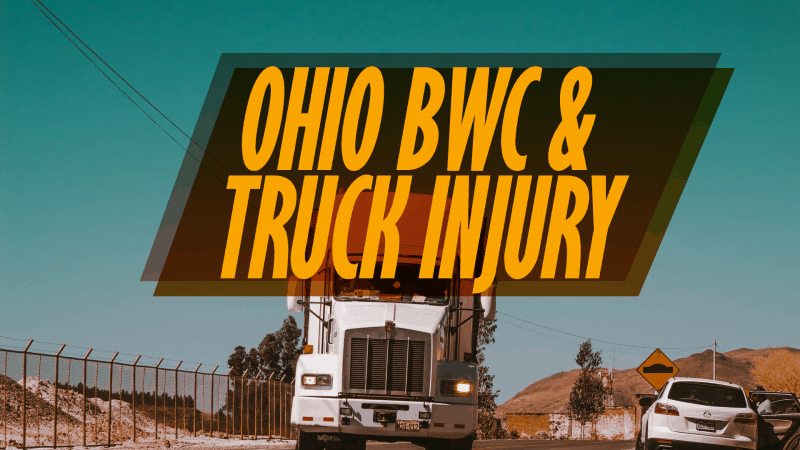
Whether you can file a claim in Ohio or another state can have major consequences to the benefits and compensation you may be entitled to. Workers compensation benefits are different from state to state. Some are more generous than Ohio, many more are significantly less generous.
At Malek & Malek Law Firm we occasionally get inquires from truck drivers who have had a truck injury in another state. They want to know whether they can file a Ohio Workers comp claim or whether they are limited to filing a claim in the state where the injury occurred. As everything workers comp related the answer is: maybe.
Lynch V. Mayfield
An appellate case Lynch v. Mayfield provides some guidance as to whether a truck driver can file a claim in Ohio. In Lynch a truck driver was based out of a trucking terminal in Springfield, OH. She drove a loaded trailer from Springfield, Ohio to Dallas, Texas. After dropping her load in Dallas, she picked up another load and was rear-ended in Dallas, Texas on her way to Arkansas.
The employer, J.B. Hunt filed a workers comp claim on behalf of the truck driver in Arkansas through its insurer. That Arkansas insurer paid some benefits and compensation to the driver. The driver elected to file a workers comp claim in Ohio.
The court in Lynch v. Mayfield applied a five factor analysis whether jurisdiction is proper in Ohio. In this case Ohio found that Ohio did have jurisdiction over the employee’s workers comp claim. That is the injured truck driver could file a workers comp claim in Ohio even though the employer filed an Arkansas claim. The five factor analysis follows:
- The locus of the employee’s contract for hire. Here the employee was hired in Arkansas by an Arkansas company, J.B. Hunt. This factor would tend to go against Ohio having jurisdiction over this truck injury.
- The locus of control and supervision. Here the truck driver was supervised by folks at the Springfield, Ohio terminal. This factor would tend to go for Ohio having jurisdiction.
- Where the work related injury occurred. Here the injury occurred in Texas, not Ohio, this factor would tend to go against Ohio having jurisdiction over the workers comp claim.
- Whether the employee is employed in Ohio, or employed at an employer’s Ohio branch or facility. Here the truck driver’s home base was J.B. Hunt’s trucking terminal in Springfield, Ohio.
- The state where the employer paid workers’ comp premiums. Here J.B. Hunt paid premiums in Arkansas. This factor would tend to go against Ohio having jurisdiction.
As with any balancing test/factor analysis, no single factor is determinative. And as you can see here if we went by numbers only, only factor two and four seem to be for Ohio having jurisdiction. Here it looks like the court placed significance on the fact that the truck driver did work out of J.B. Hunt’s trucking terminal in Ohio. So in this case the truck injury happened in a completely different state than Ohio, yet the driver could file a claim in Ohio.
Employer and Employee may agree to be bound by the Workers Comp System of Ohio or Another State
This is important because the court said that if the employee had entered into a written agreement to be bound by Arkansas, and that agreement was filed 10 days after the agreement was signed, Ohio would not have jurisdiction over this claim. Your employer may have you sign form C-112 in which case you would be bound by the law of that other state.
Finally in Lynch v. Mayfield, employer J.B. Hunt unilaterally filed the workers comp claim in Arkansas and paid some benefits. Ohio said that’s okay, Ohio will offset any comp or benefits paid by Ohio’s BWC with the comp or benefits already paid by Arkansas.
Ohio Workers Comp can be Very Complicated
As always every Ohio BWC claim is different. Some can be easy, but many more can be difficult and complicated. If you have any questions or any concerns about your work injury call or email the Malek & Malek Law Firm for a free consultation at 614-444-7440 or kip@maleklawfirm.com.
